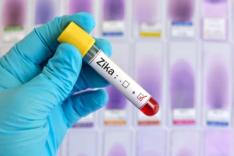The ministry of health has confirmed that three new cases of zika have been confirmed in the Turks and Caicos Islands (TCI). This includes the first confirmed case in Grand Turk and brings the total number of confirmed cases in the TCI to 15, which includes 12 females and three males.
The ministry noted that there has been an increase in mosquito activity in the TCI as a result of the recent rains. In response, the ministry continues to enhance prevention and control measures already in place against diseases transmitted by mosquitoes such as dengue, chikungunya and zika. These include education, premises inspections, fogging to kill adult mosquitoes and treating potential breeding sites such as swamps to prevent mosquito breeding.
Zika is a viral illness, which is spread by the bite of an infected Aedes aegypti mosquito. Most persons with zika are often not aware that they have the virus as they may not have any symptoms but can spread the virus to others when bitten by a mosquito. This mosquito is found throughout the Americas, including the TCI. It is found in and around homes, workplaces, and schools. Zika was first identified in the Caribbean region in May 2015, in Brazil, and has subsequently spread throughout Latin America, the Caribbean, and parts of the USA.
Symptoms of zika are similar to other mosquito borne illnesses such as dengue and chikungunya. They appear between four and seven days after being bitten by an infected mosquito and include skin rash, mild fever, conjunctivitis (also known as pink eye), muscle or joint pain, and general malaise. The public is advised to seek medical attention at the nearest clinic facility if any of these symptoms are experienced.
The concern with zika is a growing body of evidence regarding the connection between infection with zika in pregnancy and microcephaly. Microcephaly is a condition where a baby’s head is smaller than expected, which can be a result of poor development of the brain and other complications. In addition there has been an association with zika and other neurological complications such as Guillain-Barré syndrome.
There is no specific medication to treat zika and there are currently no vaccines to prevent it. However, research is ongoing in this area. Treatment is given to minimise the symptoms being experienced as a result of the infection. Most persons recover within five to fourteen days.














